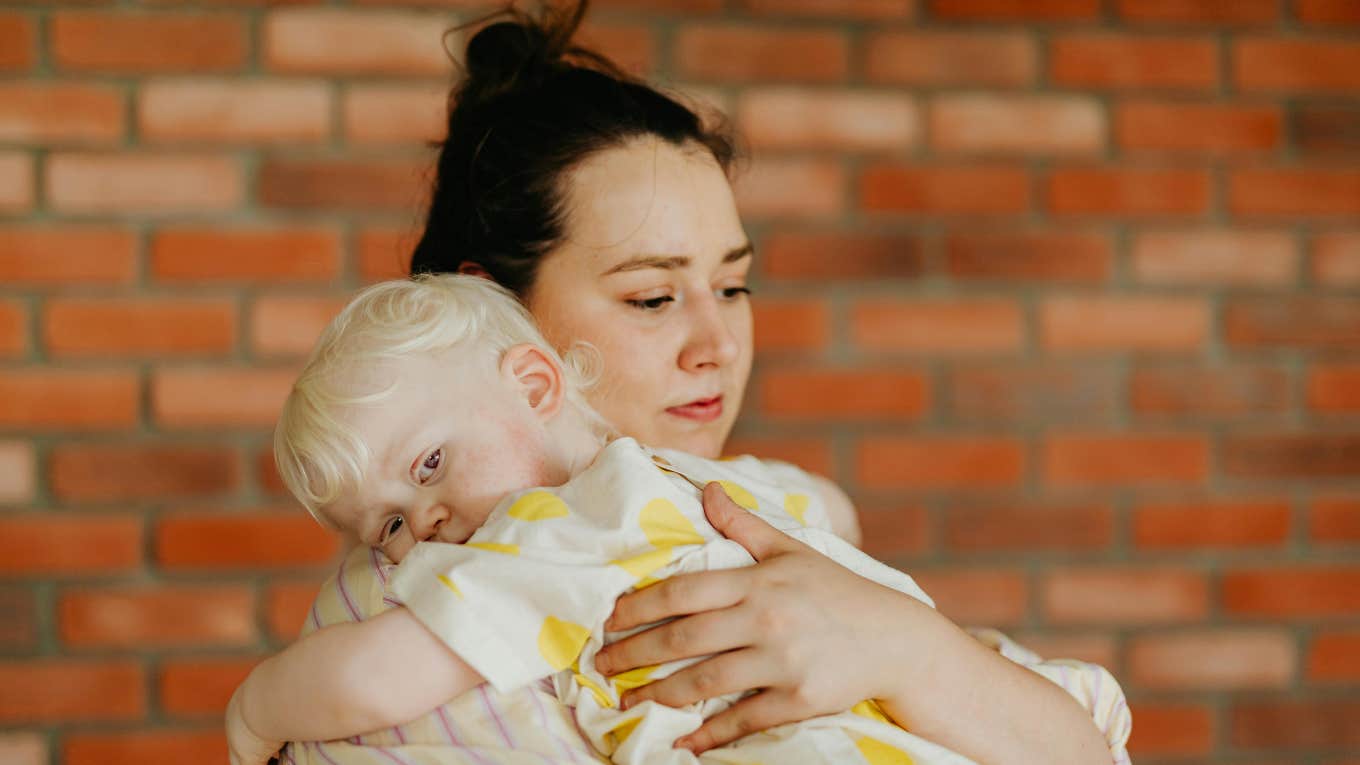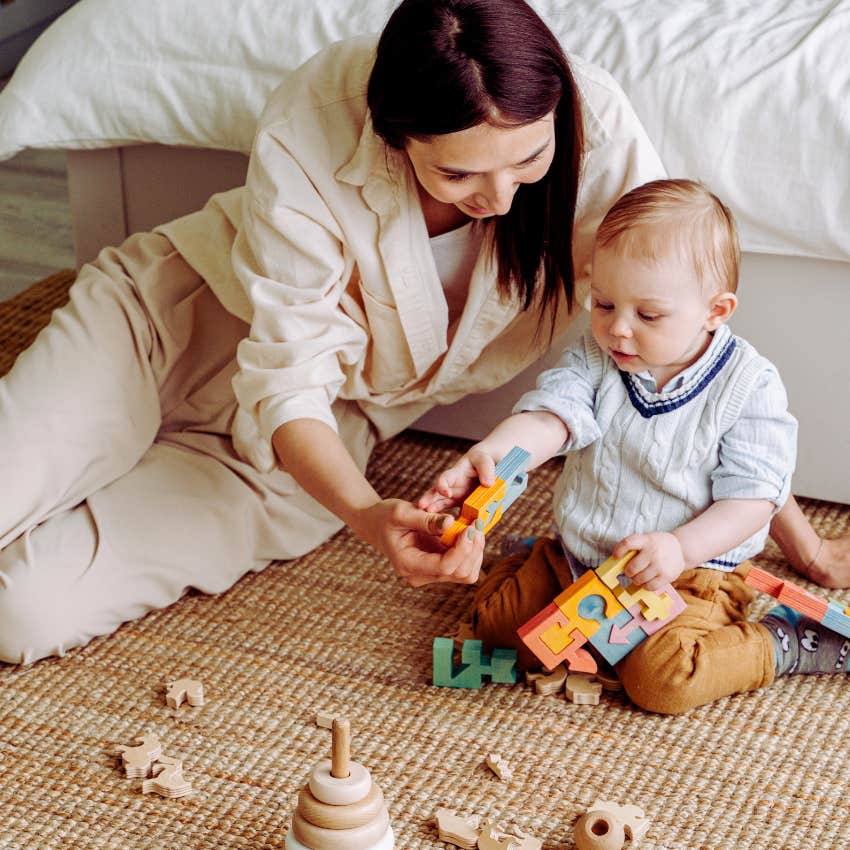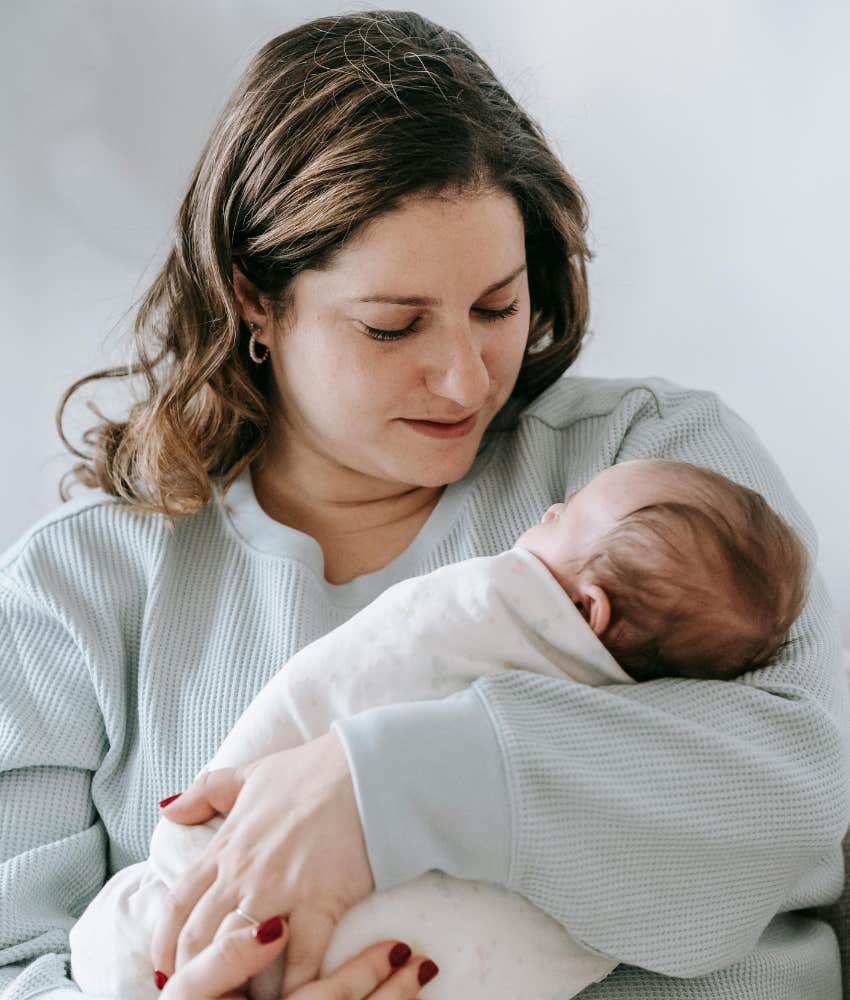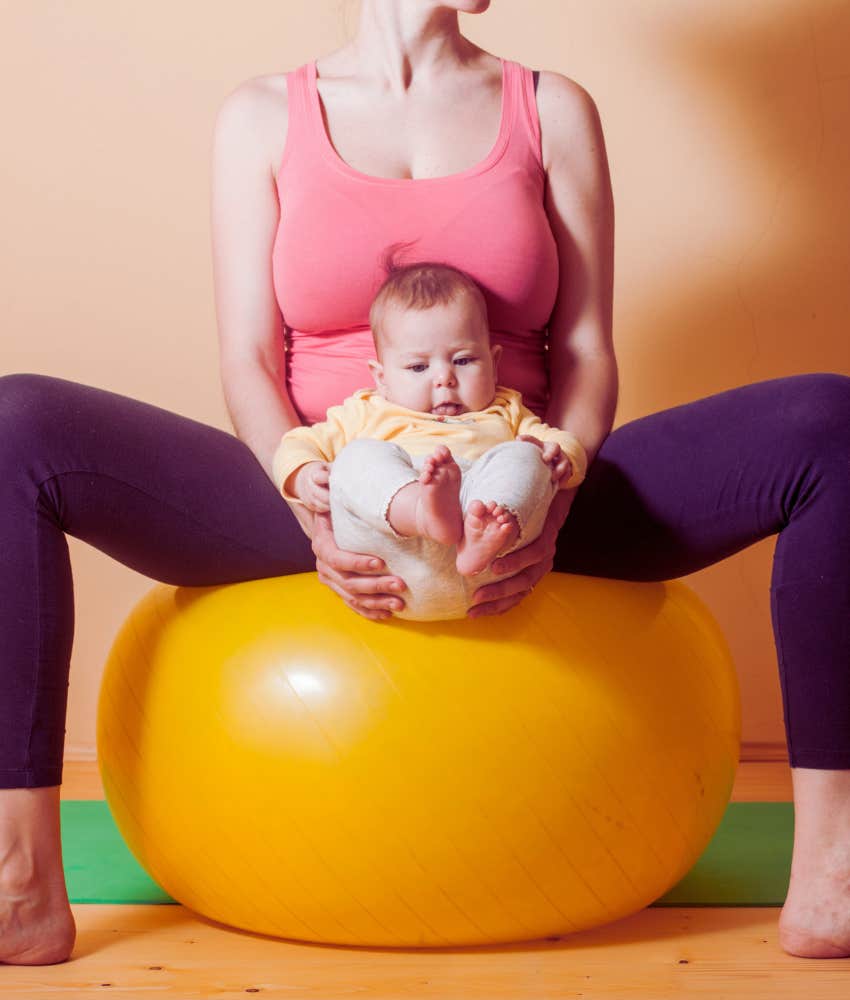Husband Sets August Deadline For His Postpartum Wife To Lose 50 Pounds
He's projecting unrealistic and unhealthy expectations onto his wife, who just had a baby.
 Karolina Grabowska / Pexels
Karolina Grabowska / Pexels Having a baby is a life-altering event. Parents often say that they can’t remember what life was like before their baby was born, a statement that holds particularly true for the pregnant parent.
Growing and birthing a baby is no easy feat, which is one major reason why moms should be gentle with themselves after welcoming new life into the world.
Yet moms often experience mountains of undue pressure, especially surrounding how their bodies are supposed to look. A lot of that pressure is societal, yet sometimes, it comes from your own community.
A husband set a three-month deadline for his postpartum wife to lose 50 pounds.
In a since-deleted post, the mom wrote to the subreddit r/AmIWrong, revealing that her husband wants her to lose weight by August. She shared that she’s 5’2, 165 pounds, and 13 months postpartum.
 Ivan Samkov / Canva Pro
Ivan Samkov / Canva Pro
“He’s not going to leave me or anything if I don’t,” she explained. “He’s just going to be disappointed and annoyed that I’m not making any [progress].”
She shared that she visited her doctor, who told her there wasn’t “anything out of the ordinary” contributing to her weight, but she feels like she’s “struggling.”
 Sarah Chai / Pexels
Sarah Chai / Pexels
“I’m sure it’s my diet since I’m obsessed with carbs, and I love soda and sweets,” she continued.
It’s important to note that framing certain foods as good or bad is an unhealthy mindset. Food doesn’t come with an assigned morality.
In that same vein, having a heavier body doesn’t automatically make someone unattractive or unhealthy. All bodies are different, and all bodies hold worth, no matter what size they are.
It’s wildly unrealistic to expect a woman who carried a baby for almost a year, then gave birth to that baby, then devoted every waking hour to keeping that baby alive, to look the way she did before all that.
Moms who are nursing or pumping need an increased caloric intake solely because of the physical work they’re doing by producing milk for their babies.
As mom and fitness coach Dr. Kelsi explained, “Breastfeeding can burn anywhere between 500 and 700 calories per day.”
“Breastfeeding is basically the equivalent of going on a 5 to 7-mile run every single day,” she said.
“Think about how tired you would be, how much fuel you would need, how much water you would need if you were to run 5 to 7 miles every single day,” she continued, sending out a much-needed message to moms that they’re working incredibly hard, even if it feels like they’re doing nothing at all.
“Postpartum, especially if you’re breastfeeding, you probably need a lot more calories than you’re taking in,” Dr. Kelsi concluded.“Please, for the love of all things holy, do not slash your calories postpartum,” she insisted.
Rachelle Gershkovich, a sleep specialist and nutritionist, broke down the number of calories postpartum moms need.
“First of all, you’re going to need your own personal daily needs, somewhere between 1800 and 2000 calories a day,” she said.
“Milk production alone, your baby’s gonna be eating around 500 calories a day; that’s 24 to 25 ounces. So, you need at least an extra 500 calories a day just for the production of what your baby needs.”
“Then you need to add in working, all the energy required to make all this milk,” Gershkovich continued. “So, it’s around 700 calories a day extra that you need just for milk production.”
Not only is it unrealistic to expect a postpartum body to 'snap back' to how it looked before, but it’s also unhealthy for both moms and babies.
Every person’s body belongs solely to them, meaning that if they want to lose or gain weight, they should do so without outside judgment.
Yet this mom’s situation raises major red flags in that she doesn’t say that she, herself, wants to change her body, but rather that her husband wants her to lose weight in a rather unhealthy way.
As one person in the comments said, “This sounds like emotional blackmail from your husband.”
“Unless you’re ready to go through a weight loss journey for you, you're not [going to] succeed,” they continued. “This has to be because you want it. Doing it for someone else never works.”
Their advice captured a grounded way of looking at any kind of change: You have to commit to transformation because you want to, not because someone else wants you to.
“Someone that loves you wouldn’t set you up for failure like this,” commented someone else. “No one can lose 50 pounds in that amount of time, at least not healthily.”
Another person shared their wisdom around weight loss, saying that it’s “never as simple as ‘eat less, move more.’ Everybody’s body and physiology is unique and different, especially postpartum, which he will never understand.”
 Anna Shvets / Pexels
Anna Shvets / Pexels
One woman commented on the underlying misogyny of the husband prescribing a weight-loss deadline for his wife, saying, “And dudes wonder why ladies are picking the bear,” referring to the trend of asking women if they’d rather be alone in a forest with a strange man or a wild bear.
On the other side of the gender spectrum, a dad shared his opinion, citing his own lived experience.
“My wife and I have two children together. Our bodies both look different now than they did when we first got together. I want my wife to feel good and be healthy. If she wanted to lose weight, I ]would] support her. As long as she is healthy, that's what is important,” he said.
“What he is asking is not healthy in any way,” the dad continued before wondering, “Why is he asking? Is he worried about your health or just worried about your physical appearance?”
He shared a truism about being in a body that’s easy to forget yet sacred to remember, saying, “Health is a journey, not a destination.”
 oksanashufrych / Canva Pro
oksanashufrych / Canva Pro
“What I mean is that you won't hit a goal weight and magically be happy there in perpetuity,” he concluded, which brings up a valuable point in the larger conversation around weight loss.
A registered nurse offered his perspective, saying, “You’d be amazed how different people’s bodies are.”
“The scale is not an accurate depiction of one’s health or aesthetic,” he explained. “No two bodies are the same, and body structure and anatomy of bones and muscles are different for everyone, so it’s impossible to know how someone will look or how healthy they’ll be losing or gaining ‘x’ amount of pounds.”
Losing weight isn’t always equated with better health. It doesn’t automatically make someone happy or confident in who they are as a whole person.
The only thing that can make you feel at home in your body is to radically accept yourself for who you are in this exact moment, no matter what the number on the scale or your misguided husband says.
Alexandra Blogier is a writer on YourTango's news and entertainment team. She covers social issues, pop culture, and all things to do with the entertainment industry.

